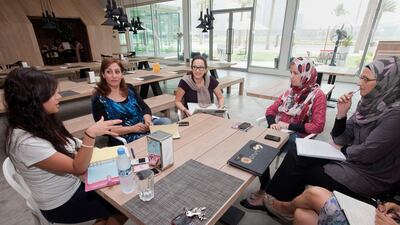In recent years, I am often called upon to offer guidance, in some form, to people much younger than myself. "Mentoring" is the conventional term and it creeps up with advancing age.
It is not always easy to be put in this position. In the past, when I was of more tender years, I generally had the confidence to get on with most things. I listened to advice from those older and more experienced than myself, yes, but I usually carried on working while trying to learn from my inevitable mistakes and the bruises inflicted as a result.
As reasonably confident as I still am, I have come to accept that younger friends and colleagues may be better equipped, in a variety of ways, to do some of the things differently and perhaps better than I would do. That is not always easy to admit but it is the way of the world.
This is partly because new skills have been developed, making possible now what would not have been feasible in the past.
One example is in the field of archaeology, with which I have just become actively engaged again after a hiatus of over a decade. Some of the scientific techniques available now just didn’t exist before. If I am honest, I really don’t understand them, though I am trying to comprehend the results that they yield. I hope that I can still offer something of use, though, even if it is just a matter of placing today’s work in the context of how things were done 20 or 30 years ago, to show the way in which things have moved on.
I am reassured by a comment from someone, who is today a leading figure in the field, but was just starting out a couple of decades ago, that perhaps I am like a phoenix rising, after a long absence. That is better, I think, than being likened to a "bad penny" that has turned up again. Perhaps my contributions are still of value, even if not in a monetary sense.
As one recognises that the world has moved on, even if one is not always comfortable with all of the changes, so it is important to learn to pass on the information one has gathered. It may not all be useful today, but that is for someone else to decide, not me.
In the same way, looking back at what I learnt from my parents, teachers or early colleagues, I can see that the relevance of much of what they taught me has faded by the wayside.
It is nice, of course, to discover that some of the information I can share is considered to be of interest to people much younger than myself. That is how the age-old process of the passing down of knowledge continues and, every now and then, one finds that a near-forgotten skill or piece of information is still of some use.
I consider myself lucky, therefore, that I am now collaborating with members of a younger generation who share my fascination with the environment, history, archaeology and heritage.

In the course of their professional careers and off-duty lives, they will, I am sure, build upon the results of past studies.
If that is what is meant by "mentoring", then that’s fine by me. That’s not always how it works, though.
In recent weeks, I have been engaging with a young man in his 20s who is fascinated by developments in an aspect of politics, in which I have some non-UAE experience. Somewhat presumptuously, he has convinced himself that he has unique solutions to offer.
It is great that he’s interested, unlike too many of his generation. So I have listened to his ideas and have tried gently to put them in context, suggesting that he might benefit from broader knowledge. He might even find value, I have suggested, in listening to those, including me, who have memories of past successes and past failures to share.
Sadly, while I am prepared both to offer my own thoughts and to listen, he seems to be interested primarily in his own voice. My desire to mentor him is consequently fading. Perhaps he’ll find someone else to whom he’s more attuned. I fear, though, that he may end up like the Greek mythological figure, Icarus, who, overcome by hubris, didn’t listen to his father’s advice, and flew too close to the sun. The wax holding his wings together melted, and he fell into the sea and drowned.
Mentoring, I have realised, is very much a two-way process. The mentor must both listen and teach, trying to empower the mentee. In return, the recipient must listen and must be prepared both to challenge and to learn.
As I try to share knowledge, I know I still have much to learn. I hope that those with whom I engage, or most of them, feel that they are also benefitting.


